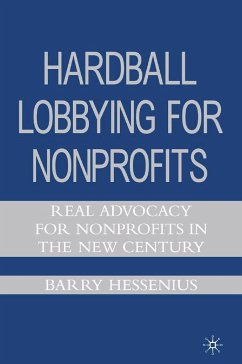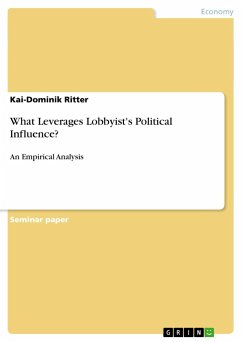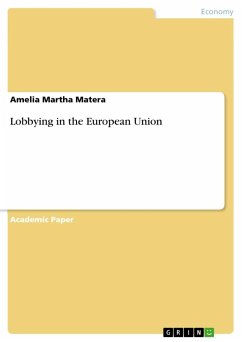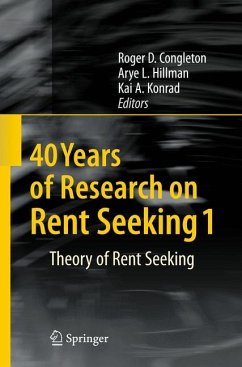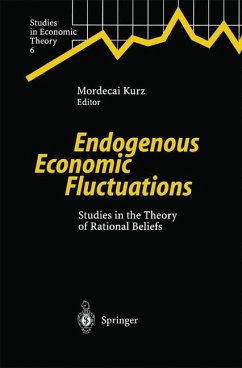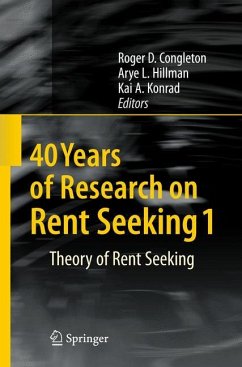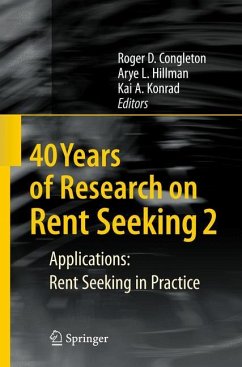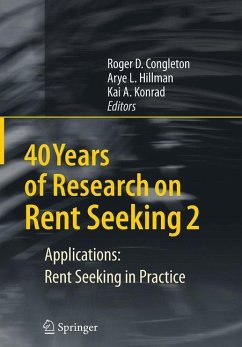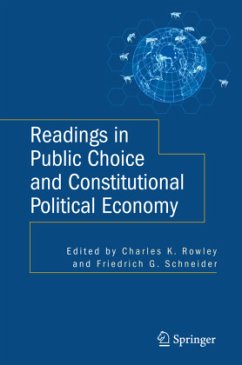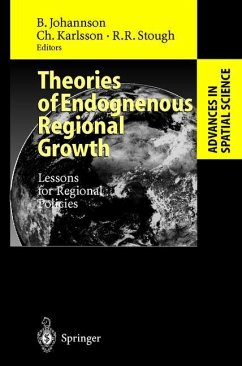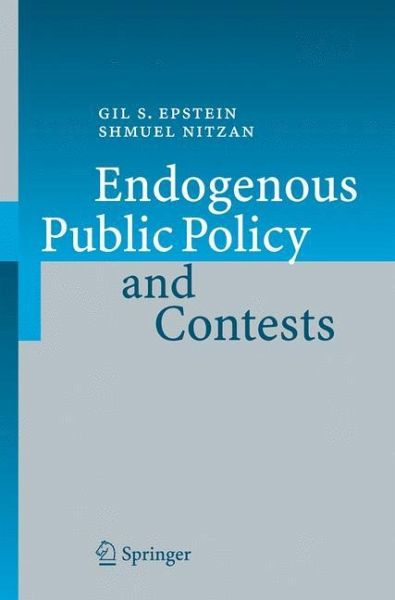
Endogenous Public Policy and Contests
Versandkostenfrei!
Versandfertig in 6-10 Tagen
76,99 €
inkl. MwSt.
Weitere Ausgaben:

PAYBACK Punkte
38 °P sammeln!
This book studies endogenous policy determination focusing on the role of interest groups and their lobbying efforts in the determination of public policy. Applying strategic contest theory as the basic methodology, it clarifies the fundamental parameters that determine the behavior of the government and the interest groups - the two contestants for the "prizes" associated with public policy. The fundamental parameters are the objective of the government, political culture, the contest success function, the stakes of the interest groups and their characteristics. The analysis focuses on the re...
This book studies endogenous policy determination focusing on the role of interest groups and their lobbying efforts in the determination of public policy. Applying strategic contest theory as the basic methodology, it clarifies the fundamental parameters that determine the behavior of the government and the interest groups - the two contestants for the "prizes" associated with public policy. The fundamental parameters are the objective of the government, political culture, the contest success function, the stakes of the interest groups and their characteristics. The analysis focuses on the relationship between these parameters and public policy, the contest winning probabilities of the interest groups and their efforts. Comprehensive illustrations of the usefulness of the proposed approach are provided in five specific cases: the determination of monopoly price, privatization policy, migration quotas, minimum wage and promotion in tournaments.





